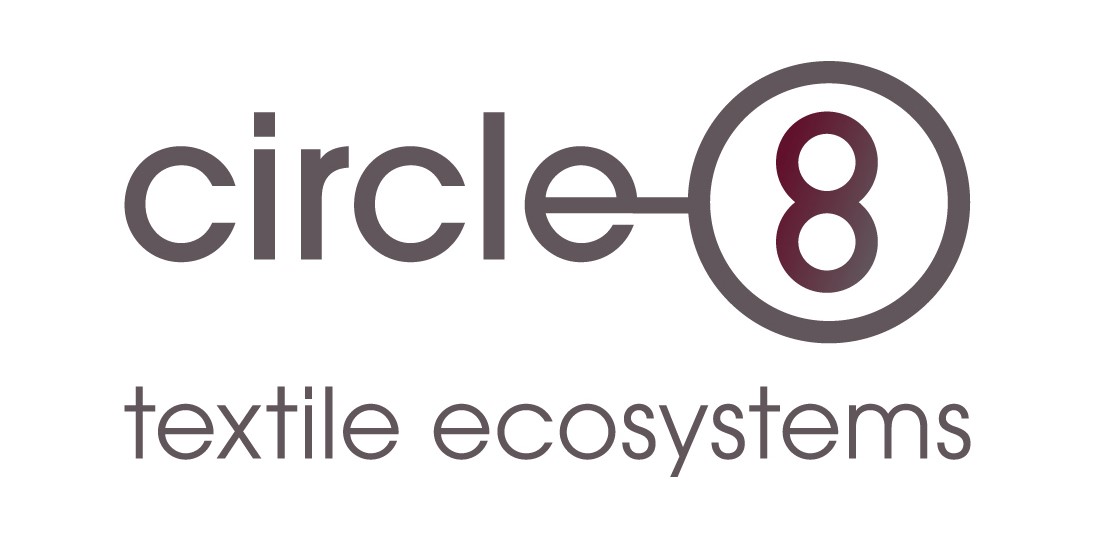
Circle-8 emerges as pioneering innovator for the transition to circular textiles
16th June 2023
Circle-8 Textile Ecosystems is debuting in the growing UK circular textiles sector by playing a vital role in the £4 million Autosort for Circular Textiles Demonstrator (ACT UK) project. This collaboration of key industry stakeholders led by the UK Fashion & Textile Association (UKFT), with close involvement of Circle-8 Textile Ecosystems, is pioneering the design of a fully integrated, automated sorting and pre-processing facility to turn non-reusable textiles into feedstock for fibre-to-fibre recycling processes in the UK, thereby diverting thousands of tonnes of textiles from UK landfill and incineration.
Established to help enable the transition to a circular economy for textiles, Circle-8 is committed to the implementation of a full scale 50,000 tonne per year automated sorting and pre-processing facility to produce and supply feedstock to existing and emerging mechanical and chemical recycling processes. In line with its goal to introduce the UK’s first industrial scale fibre-to-fibre chemical recycling plant, the company is taking part in the two-year-long ACT UK initiative.
The project, announced by the Secretary of State for Digital, Culture, Media and Sport (DCMS), Lucy Frazer MP, as part of the Creative Industries Sector Vision, on 14th June, will bring together and advance key technology components required to transition from manual sorting methods to automated systems. These include state-of-the-art optical scanning, robotics, AI, pre-processing (buttons, zips, trim removal) and size reduction equipment – all under one roof. It will create a world-class blueprint that integrates the latest technologies and can be replicated across the UK.
With over 300,000 tonnes of non-rewearable textiles estimated to be generated annually in the country, ACT UK will establish an enabling solution to turn unwanted textiles into feedstock for fibre-to-fibre recycling methods. In effect, it will pave the way for a concrete, optimised approach that can meet high throughput and quality feedstock requirements for recyclers.
Adam Mansell, CEO of UKFT, comments: “What happens to our textiles when we no longer need them is a growing problem that we cannot ignore. With this ground-breaking project, we’re aiming to create a model to sort and prepare non-rewearable textiles for recycling in a way that’s never been done before, at scale. A national system of recycling plants could save 100,000s of tonnes of material from entering landfill. In turn, the system could generate huge volumes of material for use across the UK textile manufacturing sector.”
Cyndi Rhoades, CEO of Circle-8, concludes: “The creation of a truly circular textile industry requires a comprehensive approach that evolves and reshapes the post-use textiles collection and sorting supply chain. Transitioning to regional, automated sorting facilities for non-rewearable textiles is an absolute must if we want to achieve reliable, high volume, cost effective material inputs for industrial scale fibre-to-fibre recycling plants. ACT UK offers precisely this, and we are thrilled to be part of this ground-breaking initiative.
Besides ACT UK, Circle-8 and UKFT are also collaborating on the Digital Supply Chain Hub Testbed for Textiles project, funded by Digital Catapult’s Made Smarter Innovation programme. This aims to develop technical solutions to access and use cross-supply chain data, delivering key insights into the economics and values of post-consumer textiles suitable for recycling to retailers and others in the supply chain.
About ACT UK
ACT UK brings together a consortium of recycling technologies, textile collectors/sorters, academia, manufacturers, industry associations, technologists and brands/retailers, supported with funding from Innovate UK. It is part of a broader Circular Fashion Programme supported by Innovate UK, the Arts and Humanities Research Council (AHRC) and the Natural Environment Research Council (NERC), all part of UK Research and Innovation (UKRI).
Led by the UKFT with close involvement of Circle-8 Textile Ecosystems, current project partners include IBM, Marks & Spencer, Tesco, Pangaia, Reskinned, Salvation Army, Oxfam, Textile Recycling International, New Look, Shred Station, Worn Again Technologies, English Fine Cottons, Alex Begg, Camira, Manufacturing Technology Centre, University of Leeds, University of Huddersfield, Textile Recycling Association and WRAP.
Image 1: This collaboration is pioneering the design of a fully integrated, automating sorting and pre-processing facility to turn non-reusable textiles into feedstock for fibre-to-fibre recycling processes in the UK.
About Circle-8 Textile Ecosystems
Circular textile innovator Circle-8 Textile Ecosystems plans to break ground in 2025 for a 50,000 tonne per year plant in the UK to chemically recycle non-reusable textiles into raw materials. The output can then be used to make new textiles. To support this goal, Circle-8 is taking key steps to drive the development of industrial scale, fully automated sorting and pre-processing plant for non-reusable textiles in the UK.
In line with ambitious circularity and environmental accountability principles, Circle-8 is committed to leveraging cutting-edge digital technologies for sorting, pre-treatment and recycling of textiles to drive operational efficiency, traceability and multi-tier sustainability reporting.
Web: news.dmaeuropa.com
Email: press-team@dmaeuropa.com
Address: Progress House, Midland Road, Worcester, Worcestershire, WR5 1AQ, United Kingdom
Reader Contact:Circle-8 Textile Ecosystems: Cyndi Rhoades